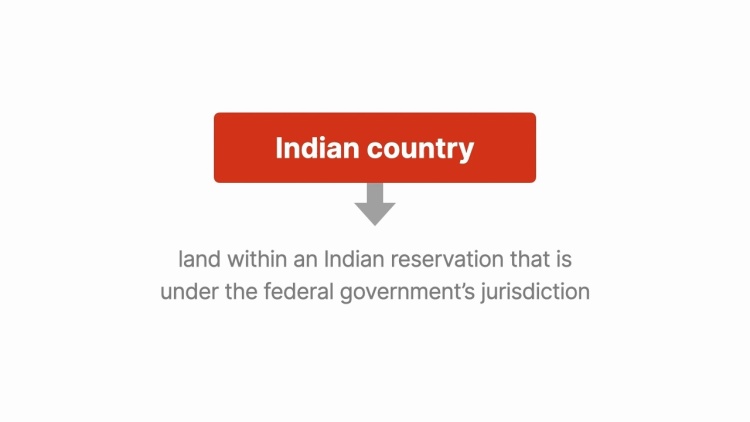Oklahoma v. Castro-Huerta
United States Supreme Court
142 S.Ct. 2486 (2022)
- Written by Liz Nakamura, JD
Facts
Victor Castro-Huerta (defendant), a non-Indian, severely malnourished and neglected his five-year-old stepdaughter, a Cherokee Indian. The State of Oklahoma (plaintiff) convicted Castro-Huerta on child-neglect charges. Castro-Huerta appealed to the Oklahoma Court of Criminal Appeals. While Castro-Huerta’s appeal was pending, the United States Supreme Court, in McGirt v. Oklahoma, held that the Creek Nation’s historic reservation in Oklahoma was still Indian country because the reservation had never been properly disestablished by Congress. Relying on McGirt, the Oklahoma Court of Criminal Appeals subsequently recognized additional portions of Oklahoma as Indian country, including the area in which Castro-Huerta resided. Ultimately, 43 percent of Oklahoma was classified as Indian country. Based on McGirt, Castro-Huerta argued on appeal that, because his crime had been committed against an Indian child in Indian country, the federal government had exclusive jurisdiction, and Oklahoma could not prosecute him. Specifically, Castro-Huerta argued that both the General Crimes Act and Public Law 280 preempted state jurisdiction over crimes committed against Indians in Indian country. The appellate court agreed and vacated Castro-Huerta’s conviction, holding that Oklahoma lacked jurisdiction. The United States Supreme Court granted certiorari.
Rule of Law
Issue
Holding and Reasoning (Kavanaugh, J.)
Dissent (Gorsuch, J.)
What to do next…
Here's why 907,000 law students have relied on our case briefs:
- Written by law professors and practitioners, not other law students. 47,100 briefs, keyed to 996 casebooks. Top-notch customer support.
- The right amount of information, includes the facts, issues, rule of law, holding and reasoning, and any concurrences and dissents.
- Access in your classes, works on your mobile and tablet. Massive library of related video lessons and high quality multiple-choice questions.
- Easy to use, uniform format for every case brief. Written in plain English, not in legalese. Our briefs summarize and simplify; they don’t just repeat the court’s language.





